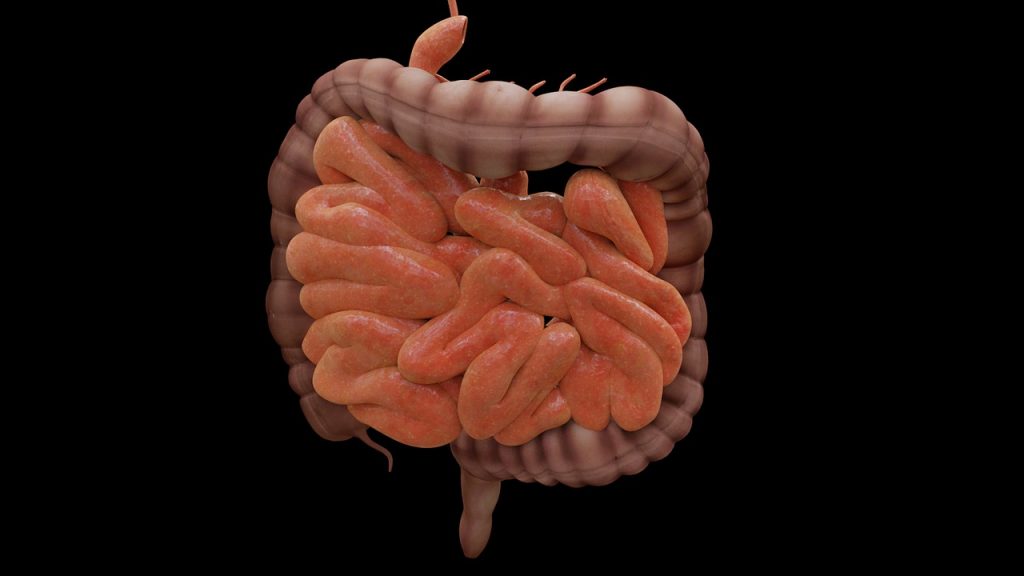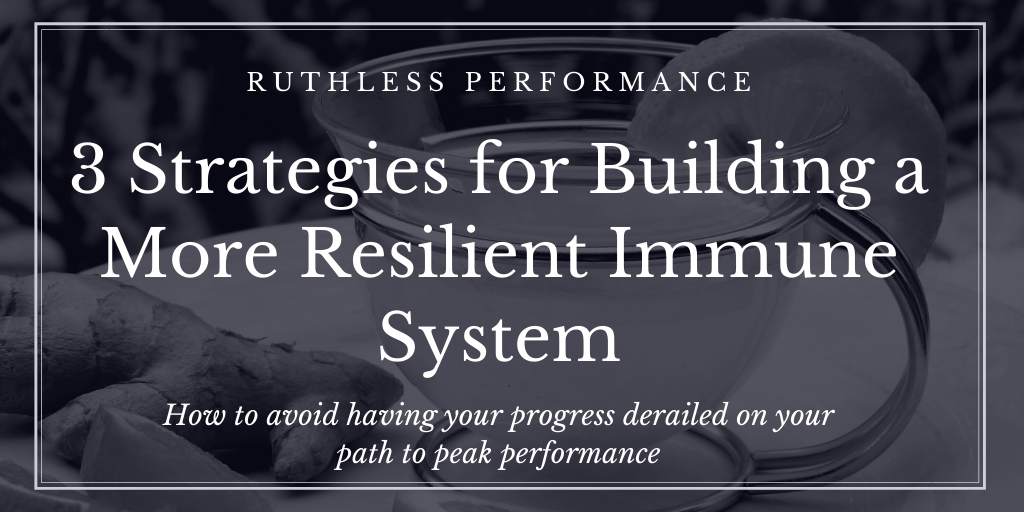In light of the current state of global affairs, the immune system is quite the hot topic. While we at Ruthless Performance are in no way interested in profiting off of our current global pandemic (to the extent that we won’t even mention this disease by name in this article, SEO, titles, or taglines), but we are interested in ensuring our readers have the requisite tools to keep their immune system at its peak regardless of what the world may throw at it.
1. Health and Immunity are One in the Same
I’ll start by saying we’ve gotten far too categorical when it comes to our health; dividing wellness into various easily understood branches and segments–but the body works through integration and as one interdependent system. Modern science neglects this basic fact, not due to ignorance or evidence to the contrary, but because the scientific method can not be easily applied or interpreted against such a confounding and complex system such as the human body in its entirety.
The scientific method can not be easily applied or interpreted against such a confounding and complex system such as the human body in its entirety. Click To TweetSo when considering the health of the immune system, one must equally consider the broader health of the system. Immune health will never be ideal when an organism is depressed, undernourished, inflamed, or otherwise functioning at a less than optimal range. So in order for the immune system to function at its best, you must be fulfilling the basic requirements of wellness. Sleep, nutrition, stress, and general fitness are requirements not only for a happier, more fulfilling life, but they also propagate the body’s ability to fight infection.
2. 60% of the Immune System is in the Gut
There are much more catchy subheadings out there, but this stat might be the greatest takeaway from this article, I’ll repeat: 60% of the Immune System is in the Gut. Simply considering this fact against any decision you make when choosing if you should or shouldn’t eat something will make a noticeable difference in your immune health moving forward.
Be binary, don’t give yourself excuses, do mental gymnastics to justify a decision, or anything else beyond answering in a very finite yes/no manner: Will the decision to eat this food be good or bad for my health? This isn’t the complex self talk that its made out to be. And if you don’t know if something is good for you, assume that it isn’t until you prove otherwise. For more on this, do a search for the elimination diet.
What does it mean for 60% of the immune system to be in the gut and why is this the case?

The inside of the intestinal tract is actually outside of the human body. This is true because it is a segment of what scientists and clinicians call the alimentary canal. The alimentary canal is the tube that extends from mouth to anus and is aptly responsible for both intake and output. Because of its function, the GI Tract is highly permeable. This allows for the diffusion of nutrients into the blood and the removal of waste products. But since this barrier is so permeable, it could allow for very large molecules to pass through into the blood, leading to infection or illness.
Various microorganisms in the gut, which we generally refer to as ‘the good bacteria’ help minimize the chance of this by controlling for acidity and producing antibodies, think of it like an innate vaccination mechanism.
There’s a multitude of supplements on the market to help fix the gut, but I prefer using whole food sources to maximize gut health when possible. Some of my favorites include full-fat greek yogurt, kombucha, apple cider vinegar (I talk about this shit almost daily), raw sauerkraut, and kefir. High-fiber veggies like asparagus or broccoli serve to help perpetuate these bacterial colonies as they begin to take root in the gut.
3. Increase Your Immunity with Exposure to Nature

Hold on because this isn’t some hippy nonsense. Just like the brief and mild exposure of the gut to pathogens can actually cause a positive antibody-based defense, a similar defense occurs with nature. Pollen, bacteria, and other various particulates found in nature cause a general immune response that stimulates the release of NK cells (Natural Killer)(1). As it so happens, these NK cells are particularly valuable and well-suited to fight against viral infections.
In addition to this NK cell production caused by air particulates in nature, the accompanied sun exposure is helpful as well. The sun has gotten a bad rap as of late. This can be attributed to the relationship between sun exposure and the risk of skin cancer, but too little sun exposure can be a problem as well.
The science surrounding Vitamin D and immune health is so cutting-edge that its mechanisms aren’t yet fully understood (2). In reality, this point may actually be an extension of point #2 because of the unusual relationship between Vitamin D, serotonin, and the gut.
An emerging theory in health actually suggests that the high incidence of illness in the winter may not be from being ‘stuck inside around sick people’ but rather because of the reduction in serum Vitamin D levels inherent to the low winter sun and minimal sun exposure. A proposed mechanism through which the sun can improve immune function is the photosensitivity (light sensing) of another immune system cell, the T-Cell.
While the NK Cells have a more specific response to viral infections, T-Cells have a broader response to pathogens generally and even cancer.
You Can’t Practice Without Wellness
Many high performers in both athletics and business have little interest in the basics of wellness. Wellness practices are time consuming and can be a hassle to habituate into your daily routine. But to ignore wellness is to leave open and increase the likelihood that you’ll be spending time off of the field due to illness.
Take control of your health to control the game.
Works Cited
(1) Tsao, Tsung-Ming et al. “Health effects of a forest environment on natural killer cells in humans: an observational pilot study.” Oncotarget vol. 9,23 16501-16511. 27 Mar. 2018, doi:10.18632/oncotarget.24741
(2) Phan, T., Jaruga, B., Pingle, S. et al. Intrinsic Photosensitivity Enhances Motility of T Lymphocytes. Sci Rep6, 39479 (2016). https://doi.org/10.1038/srep39479


Pingback: Featured Fitness Content: Volume 55 – Ruthless Performance
Pingback: Ruthless Performance in the Media – Ruthless Performance
Pingback: A Comprehensive Look at Our 3 Day At-Home Swimming Dryland Program – Ruthless Performance